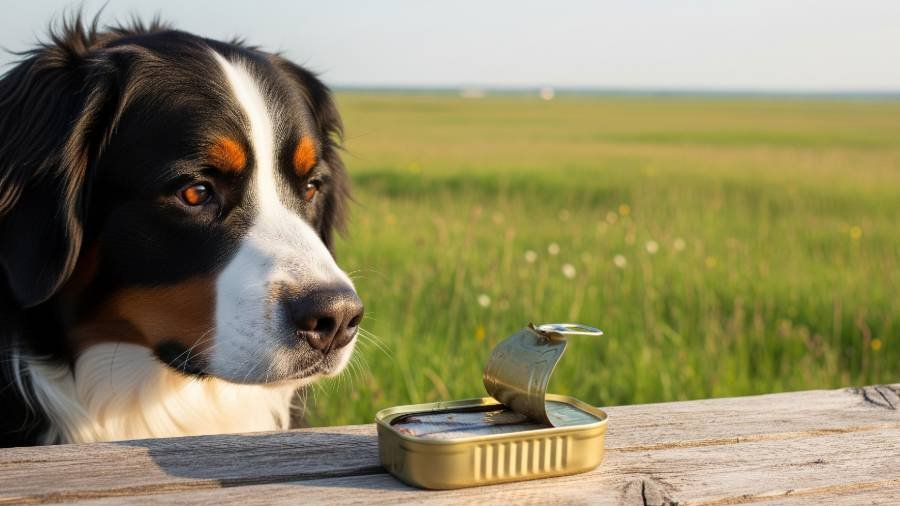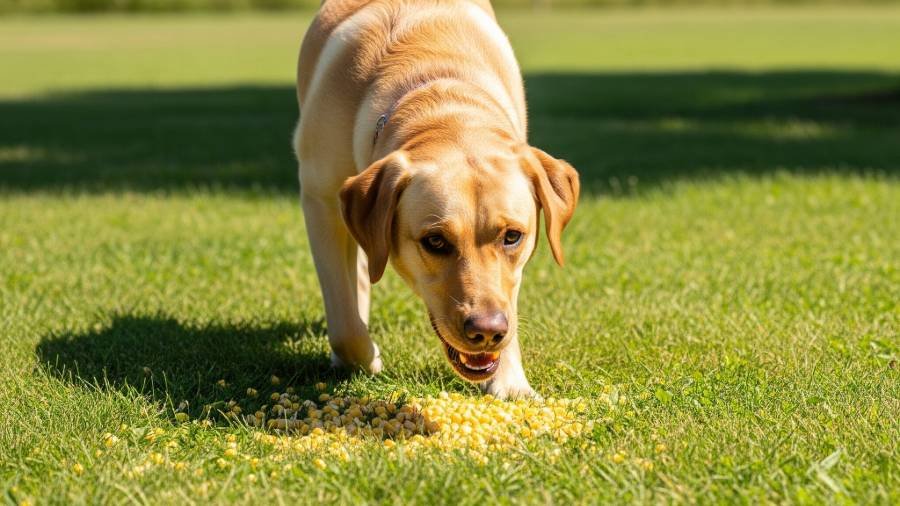Yes, dogs can eat sardines as a nutritious addition to their diet when prepared properly, offering a wealth of health benefits for dogs when fed in moderation.
This article provides a unique, detailed guide on feeding sardines to your dog, exploring their advantages, potential risks, and safe feeding practices.

Potential Benefits of Sardines for Dogs
When dogs can eat sardines in small portions, they provide several advantages that enhance a dog’s diet:
- Omega-3 Fatty Acids: Sardines, as an oily fish, are rich in omega-3s, supporting skin and coat health, reducing inflammation, and boosting heart function.
- Vitamin B12: A good source of B12, sardines aid in red blood cell production and neurological health.
- Coenzyme Q10: This antioxidant supports cellular energy and may benefit aging dogs.
- Calcium from Sardine Bones: The soft, edible bones provide calcium, strengthening bones when included safely.
- Low Mercury: As smaller fish, sardines have lower mercury levels compared to larger fish, making them a safer seafood option.
These benefits of sardines for dogs shine when you feed your dog sardines as an occasional treat or supplement to dog food. For more on safe fish, explore can dogs eat salmon with proper preparation.
Risks and Dangers of Sardines for Dogs
While sardines are safe for dogs, certain risks arise if not handled or fed correctly:
- Choking Hazard: Sardine bones, though soft, can pose a risk if not mashed or if a dog swallows them whole.
- High Fat Content: The oily nature of sardines can lead to pancreatitis or weight gain if overfed, especially in less active dogs.
- Salt Content: Tinned sardines packed in saltwater or brine can cause sodium poisoning if not rinsed.
- Raw Sardines Risks: Raw sardines may contain parasites or bacteria, potentially harming a dog’s digestive system.
- Allergic Reactions: Though rare, some dogs may develop allergies to fish, showing signs like itching or digestive upset.
- Olive Oil Concerns: Sardines in oil can add excess calories and upset a balanced diet if not drained.
How to Safely Feed Sardines to Dogs
To ensure sardines are a safe treat, follow these guidelines when feeding sardines to your dog’s diet:
- Choose Safe Preparation: Opt for cooked or canned sardines packed in water, avoiding those in oil, salt, or spices.
- Remove Excess Oil or Salt: Rinse tinned sardines to reduce sodium and fat content if water-packed options aren’t available.
- Mash or Chop Bones: Crush sardine bones to minimize choking hazard, especially for small dogs or puppies.
- Feed in Small Portion: Offer a small portion (e.g., 1-2 sardines for small dogs, up to 3-4 for larger breeds) once or twice a week, keeping treats under 10% of a dog’s daily intake.
- Avoid Raw Sardines: Cook thoroughly to eliminate parasites, unless vet-approved and frozen for at least 24 hours.
- Monitor Reactions: Introduce sardines gradually and watch for digestive issues or allergies over 24-48 hours. Consult a vet if problems arise.
- Consult a Vet: Seek veterinary advice before adding sardines, especially for dogs with pancreatitis, allergies, or kidney issues.
Signs of Sardine-Related Issues
If a dog eats sardines improperly or reacts poorly, look for these warning signs:
- Vomiting, diarrhea, or reduced appetite (possible digestive upset or salt overload)
- Difficulty breathing or choking (from bones)
- Lethargy, tremors, or swelling (indicating allergic reaction or pancreatitis)
- Excessive thirst or urination (sodium poisoning from salted sardines)
- Abdominal pain or bloating (fatty food overload)
If these signs appear, stop feeding sardines and contact a veterinarian immediately. Severe cases, such as pancreatitis, require urgent care.
Expert Opinions
Veterinary experts, including the American Veterinary Medical Association (AVMA) and the Pet Poison Helpline, endorse sardines as a safe, nutrient-rich treat for dogs when cooked or properly canned, highlighting their omega-3 fatty acid and vitamin B12 content.
They caution against raw sardines and excess salt, recommending veterinary oversight for dietary inclusion. For more on fish options, check can dogs eat tuna.
Additional Considerations
- Health Conditions: Dogs with pancreatitis, kidney disease, or fish allergies should avoid sardines. Consult a vet first.
- Puppies: Young dogs need smaller portions and mashed bones to prevent choking or digestive strain.
- Dog Preferences: Many dogs enjoy the rich taste of sardines, but some may not. If uninterested, try can dogs eat carrots.
- Tinned vs. Fresh: Tinned sardines in water are convenient, but fresh, cooked sardines offer control over preparation.
- Storage: Refrigerate opened cans and use within 2-3 days; freeze fresh sardines if not used immediately.
- Complementary Role: Sardines should enhance, not replace, a balanced diet tailored to your dog’s needs.
Safe Treat Alternatives
Instead of sardines, consider these safe-for-dogs treats, tailored to enhance a dog’s diet:
- Cooked Turkey: Plain, unseasoned turkey bits provide lean protein.
- Cooked Pumpkin: A teaspoon of plain pumpkin supports digestion.
- Carrots: Small, raw carrot sticks promote dental health.
- Plain Greek Yogurt: A small spoonful of unsweetened yogurt boosts probiotics.
Introduce new treats gradually, monitor for reactions, and consult a vet to ensure a balanced diet.
Dogs can eat sardines as a safe, nutrient-packed treat when cooked or canned in water, offering health benefits like omega-3 fatty acids, vitamin B12, and coenzyme Q10 to support skin and coat health and immune system function.
However, risks such as choking hazard from sardine bones, high fat content, or sodium poisoning from tinned sardines require proper preparation – mashing bones, rinsing salt, and feeding in small portions.
Puppies or dogs with health issues like pancreatitis should avoid sardines unless approved by a vet, and a balanced diet should remain the foundation.
Always consult a veterinarian before feeding your dog sardines, and consider safe alternatives.
For more on canine nutrition, explore can dogs eat eggs, can dogs eat salmon skin, or what fruits can dogs eat.
For additional questions about what dogs can eat or dietary concerns, feel free to ask!





